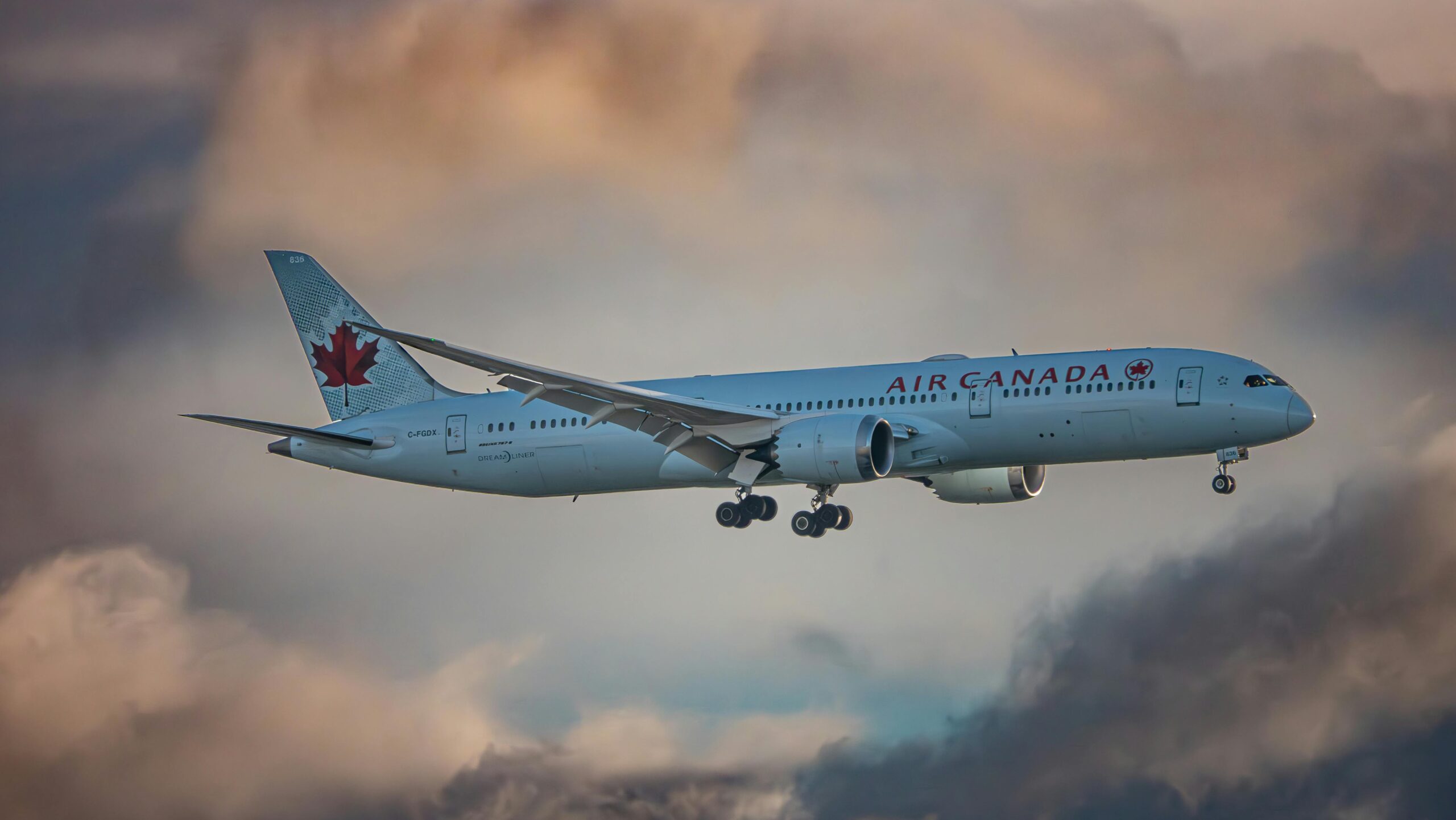What’s Happening with Air Canada?
Air Canada is preparing to suspend flights following a strike notice from the Canadian Union of Public Employees (CUPE), which represents 10,000 of the airline’s flight attendants.
The union has served a 72-hour strike notice, while the airline has responded with its own lockout notice. As a result:
- Flight cancellations began on Thursday, August 14.
- More cancellations are scheduled for Friday, August 15.
- A full suspension of flights by Air Canada and Air Canada Rouge is expected on Saturday, August 16.
- Air Canada Express flights are not affected.
Customers whose flights are canceled will be notified and can request a full refund. However, because labour disruptions are classified as outside the airline’s control under Canadian regulations, passengers are not entitled to additional compensation.
What This Means for Business Travel
For business travelers, this strike has the potential to cause major disruptions across transatlantic and North American routes, particularly those heavily served by Air Canada. Key risks include:
- Meeting disruptions: Travelers may miss critical client meetings, conferences, or site visits.
- Rebooking challenges: Last-minute changes can lead to higher costs and limited availability on alternative carriers.
- Extended delays: Even if flights resume quickly, the backlog may take days to clear.
Travel Coordination Take: How to Prepare
For travel coordinators and corporate travel managers, proactive steps can make all the difference:
- Audit Current Bookings
- Identify all employees currently scheduled to fly Air Canada in the next two weeks.
- Flag high-priority trips that cannot be postponed.
- Communicate Early with Travelers
- Share updates about the strike and the possibility of cancellations.
- Advise travelers to check the Air Canada app or website daily.
- Secure Alternatives in Advance
- Explore rebooking on unaffected carriers like WestJet, United, or Delta for North American routes.
- For Europe, consider Star Alliance partners such as Lufthansa or Swiss.
- Review Company Travel Policies
- Clarify how cancellations and refunds will be handled.
- Decide in advance whether travelers should book alternatives themselves or wait for coordinator instructions.
- Prepare Contingency Plans
- Consider remote participation for meetings if flights cannot be secured.
- Build in buffer days for critical travel around strike timelines.
Key Takeaway
Labour disputes can disrupt travel plans with little notice, making proactive planning essential. Travel coordinators who act early—by auditing bookings, communicating with employees, and securing alternative flights—will minimize disruption and protect business continuity.

